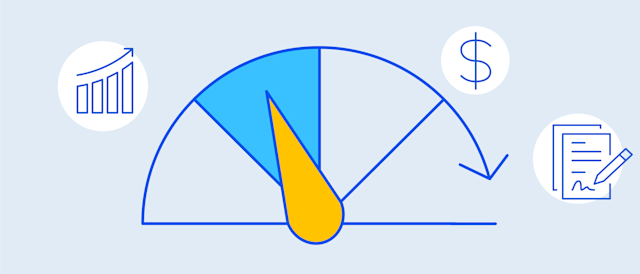Why What You Don't Know About Credit Scores Can Hurt You

Summary
Advice and misunderstandings about credit scores.
In this article:
Ads hawking for-profit credit score services and some so-called financial gurus on the Internet make credit scores sound simple. They suggest this one number reflects all you need to be concerned about when building good credit. Unfortunately, that overly simplified information can lead to misunderstandings about credit scores that could have a negative impact on your financial wellbeing.
Credit Score or Credit Report?
Some people think a credit score and a credit report are the same. That's not true. A credit report is an in-depth record of your credit history. It includes a wide range of information, including:
- Who you are (your name, Social Security number, date of birth, and sometimes employment information)
- Your credit (credit card accounts, mortgages, car loans, school loans, and other loans, how much credit you have taken out, and your payment history)
- Your public record (information about court judgments against you, tax liens, and bankruptcies)
- Inquiries (a list of companies and people who recently requested a copy of your credit report)
A credit score, on the other hand, is a number that is supposed to sum up the information in your credit report. The information that goes into figuring a credit score can include:
- The type and number of credit accounts you have (loans, credit cards, mortgages)
- If you pay bills on time
- How much of your available credit you are using right now
- Whether there are any collection actions against you for unpaid bills
- How much outstanding debt you have
- How long you've had your credit accounts
Top misunderstandings about your credit score
- Your credit score is a single number. In the U.S., there are three major credit bureaus that collect and maintain credit information: Experian, Equifax, and TransUnion. While the FICO score is the best known credit score, each bureau has several formulas they use to determine credit scores. Insurance companies, mortgage lenders, and banks also develop their own models for credit scores. That means your credit score could vary from situation to situation.
- If you make more money, you'll have a higher credit score. Your income is not included when figuring your credit score. The score reflects how well you handle credit regardless of your income.
- A low credit score can keep you from being hired. Employers do not look at credit scores. They can look at your credit report to help them gauge if you are reliable and trustworthy, but they your need your permission to do so.
- Your credit score is affected by where you live. That information is not part of a credit score calculation, so what part of the country you live in and whether you own or rent does not change your score.
- When you check your credit score, it can go down. The number of times you check your own credit score does not have a negative effect on your score. It will cost you some money to check your score, however. The cost is usually about $20 per inquiry.
- Credit cards are the best way to build your score. While having a credit card and paying your bill in full and on time does help raise your credit score, having and wisely using different types of credit like mortgages, car loans, or student loans is also factored into your score.
This article is for general education and informational purposes, without any express or implied warranty of any kind, including warranties of accuracy, completeness, or fitness for any purpose and is not intended to be and does not constitute financial, legal, tax, or any other advice. Parties (other than sponsored partners of OneMain Financial (OMF)) referenced in the article are not sponsors of, do not endorse, and are not otherwise affiliated with OMF.



